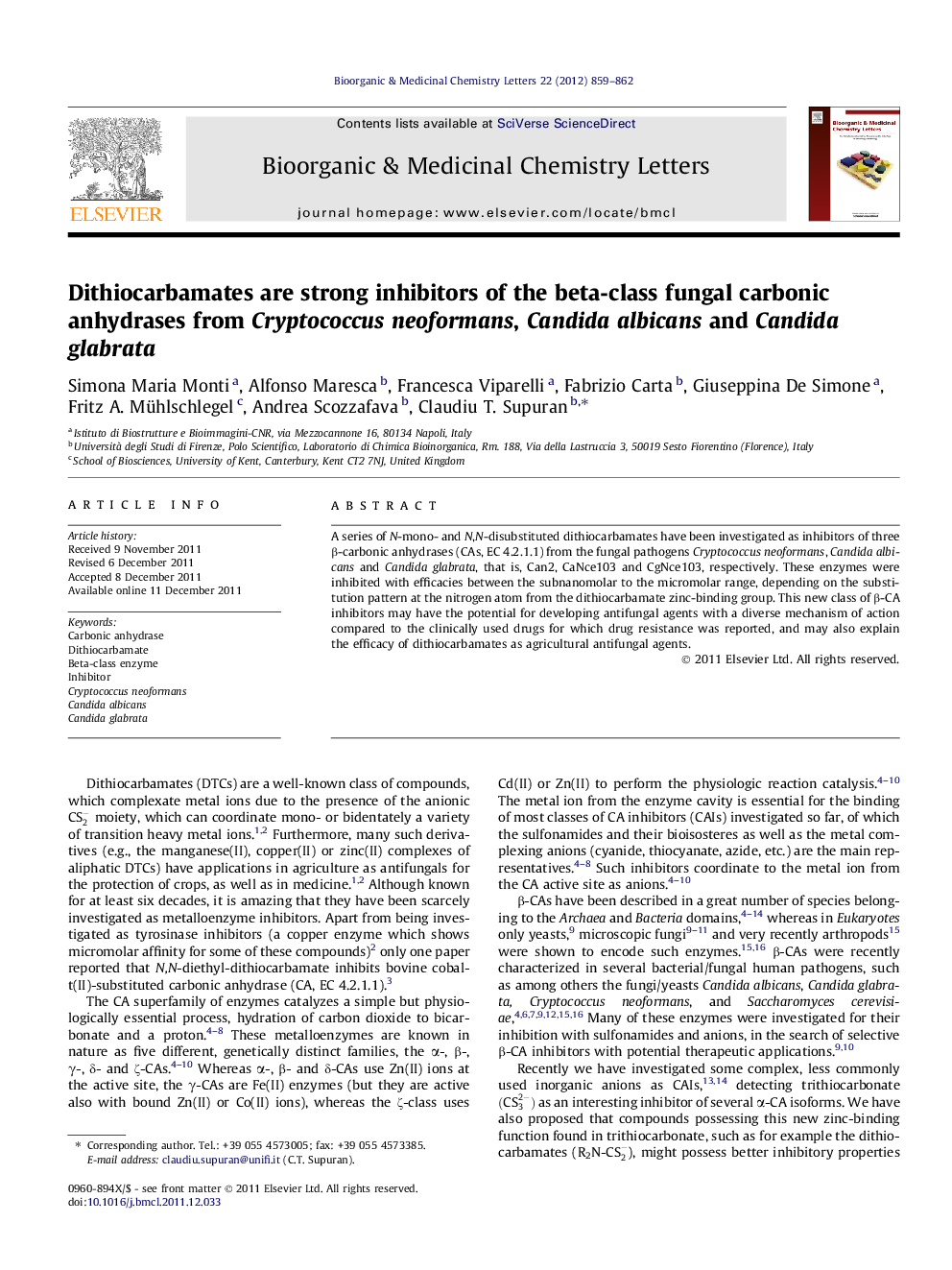| Article ID | Journal | Published Year | Pages | File Type |
|---|---|---|---|---|
| 10595175 | Bioorganic & Medicinal Chemistry Letters | 2012 | 4 Pages |
Abstract
A series of N-mono- and N,N-disubstituted dithiocarbamates have been investigated as inhibitors of three β-carbonic anhydrases (CAs, EC 4.2.1.1) from the fungal pathogens Cryptococcus neoformans, Candida albicans and Candida glabrata, that is, Can2, CaNce103 and CgNce103, respectively. These enzymes were inhibited with efficacies between the subnanomolar to the micromolar range, depending on the substitution pattern at the nitrogen atom from the dithiocarbamate zinc-binding group. This new class of β-CA inhibitors may have the potential for developing antifungal agents with a diverse mechanism of action compared to the clinically used drugs for which drug resistance was reported, and may also explain the efficacy of dithiocarbamates as agricultural antifungal agents.
Keywords
Related Topics
Physical Sciences and Engineering
Chemistry
Organic Chemistry
Authors
Simona Maria Monti, Alfonso Maresca, Francesca Viparelli, Fabrizio Carta, Giuseppina De Simone, Fritz A. Mühlschlegel, Andrea Scozzafava, Claudiu T. Supuran,
